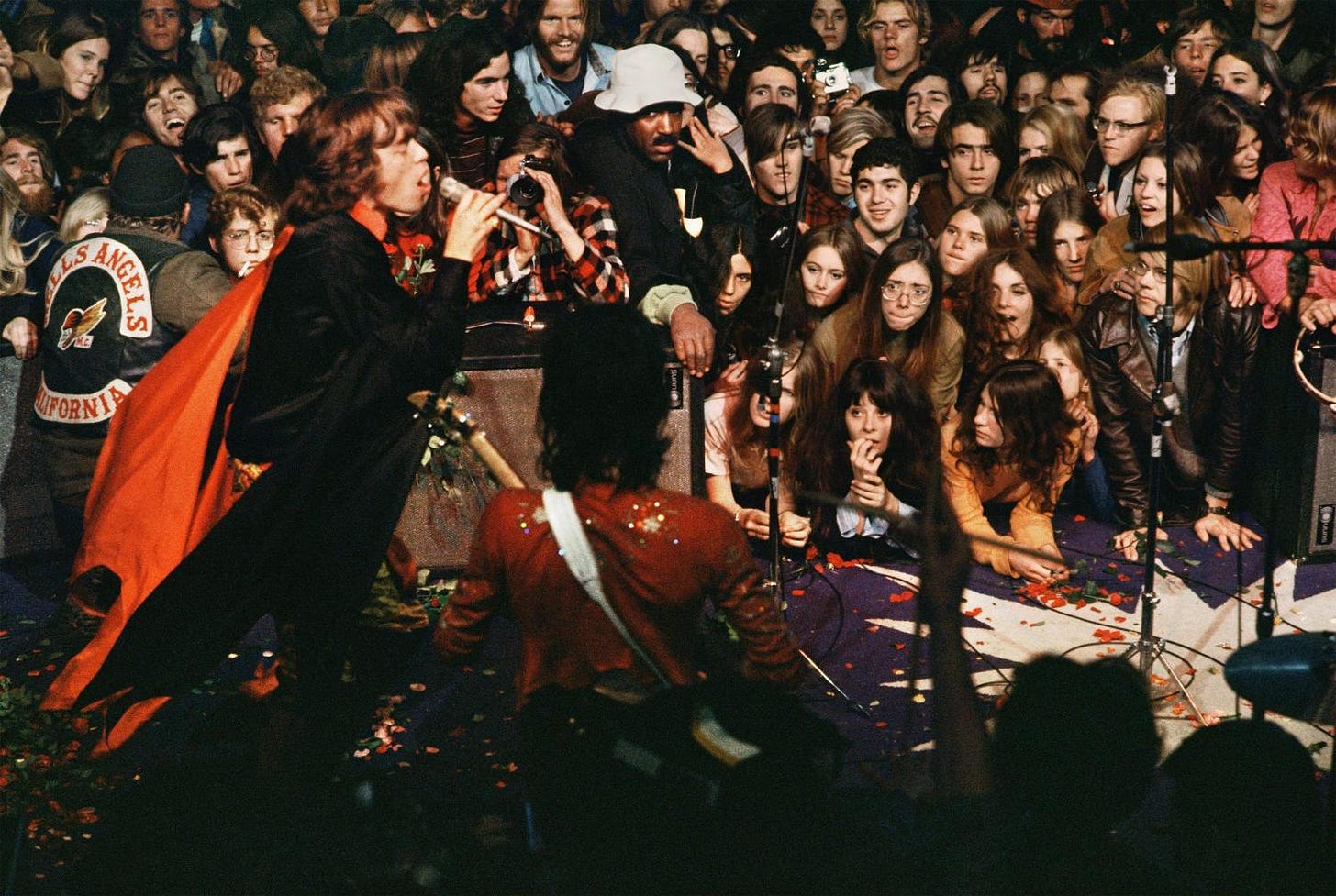Altamont Free Concert
The Altamont Free Concert, held on December 6, 1969, stands as a pivotal moment in rock music history, often seen as the dark counterpart to the optimism of Woodstock.
This event, marred by violence and chaos, has been extensively analyzed for its cultural and social implications. Here is a detailed account of its history:
Planning and Intentions
The concert was initially conceived as a West Coast counterpart to Woodstock, aiming to cap off a year of remarkable musical achievements and cultural shifts. The Rolling Stones, eager to end their 1969 U.S. tour with a grand gesture, decided to organize a free concert. The idea was also motivated by criticism the band received over high ticket prices for their tour.
Venue Troubles
Finding a location for the concert proved challenging. The event was originally scheduled to take place at San Jose State University's practice field, but logistical issues forced a change. Subsequent plans to hold the concert at Sears Point Raceway and then at the Golden Gate Park fell through, mainly due to financial disputes and short notice. Eventually, the Altamont Speedway, owned by Dick Carter, was selected as the venue just days before the event.
The Concert
On December 6, over 300,000 people gathered at the Altamont Speedway, located in Northern California. The lineup featured prominent acts of the time, including Santana, Jefferson Airplane, The Flying Burrito Brothers, Crosby, Stills, Nash & Young, and the Rolling Stones.
Security Concerns
The decision to employ the Hells Angels motorcycle club as security for the event, in exchange for $500 worth of beer, is one of the most controversial aspects of Altamont. This choice has been widely criticized and is seen as a contributing factor to the violence that ensued.
The Violence
The concert was fraught with violence and disorder from the start, culminating in the tragic death of Meredith Hunter, a young African American man who was stabbed by a member of the Hells Angels after drawing a revolver. The chaos of the day also included three accidental deaths: two caused by a hit-and-run car accident and one by drowning in an irrigation canal.
Cultural Impact
The Altamont Free Concert has been dissected by cultural historians and music critics as the symbolic end of the 1960s' hippie movement and the idealism associated with it. The violence and tragedy of Altamont starkly contrasted with the peace and love ethos of Woodstock, held just four months earlier, highlighting the complexities and contradictions of the counterculture movement.
Aftermath and Reflections
In the aftermath, the Rolling Stones faced criticism for their part in the events, though they have expressed regret and acknowledged the lessons learned from Altamont. The concert has been the subject of multiple documentaries and analyses, most notably the 1970 film "Gimme Shelter," which captures the concert and its descent into chaos, serving as a sobering reflection on a moment that encapsulates the end of an era.
Altamont remains a cautionary tale about the dangers of poor planning, the volatile mix of drugs, alcohol, and inadequate security, and the end of an era's optimism. It stands as a stark reminder of the limits of the counterculture movement and the dark side of the 1960s' legacy.
